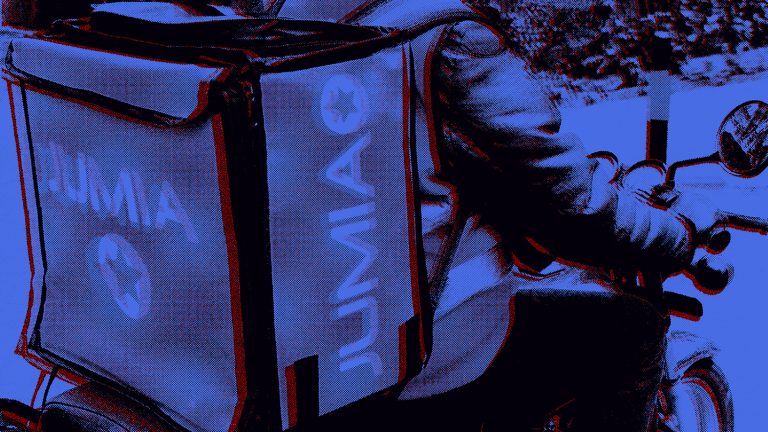Nicolás Kuroña leads a simple life in Berazategui, a small town on the outskirts of Buenos Aires. He is a father and a fan of the football team Boca Juniors. Earlier this week, he had only a few hundred followers on Twitter, where he would share his insights into Bitcoin and post hashtags affirming Latin America’s support for Trump. He also used the platform to advocate for the release of El Presto, a controversial Youtuber who was arrested last year for making death threats against Argentina’s vice president, Cristina Fernández de Kirchner.
That all changed Wednesday night, when Nicolas Kuroña made a momentous discovery. Inexplicably, the URL “google.com.ar”—the local landing page for Google in Argentina—was available. With a few clicks of his mouse, Kuroña became the stuff of legends—perhaps the greatest champion Argentina has seen since the death of Diego Maradona last November. Experts contacted by Rest of World believe that poor management of Argentina’s centralized domain system is to blame.
At 11:45 P.M. Buenos Aires time, soon after making his discovery, Kuroña declared on Twitter that he had legally registered the domain. For a few brief hours, Nicolás Kuroña of Berazategui was the owner of Google Argentina (or at least its homepage). The internet exploded.
Suddenly, he was no longer just a random dad, bostero, and aspirational crypto bro. Kuroña was a folk hero. His tweet amassed over 75,000 likes within 24 hours and his face was plastered over memes, including ones comparing him to El Diego himself.
The coup was a much-needed distraction for Argentina. After all, thanks to an 8 P.M. curfew and a sharp rise in Covid cases, Buenos Aires locals, known as Porteños, had few better options other than to stay home and shitpost the night away. In the midst of this, Kuroña became a valiant David, at odds with the twin Goliath figures of the government and the tech giant.
“Not even Google is safe from Argentine insecurity,” wrote the first Twitter user to discover the purchase. Another user encouraged Kuroña to negotiate the sale of the URL back to the company in Bitcoin to ensure that the country’s revenue service could not seize the domain. He added that he was optimistic Kuroña could score at least $100,000, and offered to help him negotiate for a 5% commission.
As social media users were busy entertaining themselves, internet sleuths—and presumably Google itself—were scrambling to figure out what had happened. Argentina has a centralized, government-run service called NIC that registers and sells all “.ar” suffixed domain names. Why, then, had Google’s become available?
Early speculation held that the domain had simply expired. With NIC, owners have to renew their license every year. Otherwise, anyone can register the URL for just 270 pesos, about $3. Sometimes people forget to renew their websites and others snatch them up just to sell them back at an exorbitant markup—a practice called cybersquatting. Had Google just been the victim of the greatest ciberocupación of all time?

Andrés Vázquez is a digital researcher with the project Open Data Córdoba, which automatically tracks and records information about thousands of domain purchases and sales. As he delved into the backend, he realized that Google’s domain had expired and been successfully renewed, but all that had happened last July. Something else must have happened.
“It is very likely that [Kuroña] is telling the truth,” Vázquez told Rest of World. “[NIC] had a failure and by mistake let this guy register and take over the domain.”
Vázquez believes that NIC was probably undergoing some kind of maintenance, and as a result, the domain became available. It likely wasn’t just that domain, either, but potentially many others. It is impossible to know, because right after Kuroña tweeted about his victory, NIC went down. When the Argentine registry went live again later that evening, google.com.ar was back in the hands of its semi-rightful owner. No confirmation has been made as to whether Kuroña was compensated or reimbursed for his loss.
A representative from NIC provided a statement to Rest of World saying, “There is not final diagnostic” regarding the incident.
Google, for its part, is pleading ignorance. In a statement to Rest of World, a representative said, “The problem that affected access to google.com.ar has been resolved. We regret the inconvenience that the situation has caused and we are continuing to investigate the causes.”
What will happen next is anyone’s guess. For the temporary loss of service, Google could sue NIC for damages. Vázquez said that NIC could also accuse Kuroña of malfeasance. “It’s difficult to know what will happen because we do not know what happened to NIC,” Vázquez said. “It is very serious. In many years of using domain data, I’ve never seen anything like this.”



